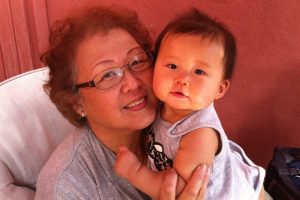
By Nadine Shiroma
I am a retiree and volunteer working to address hepatitis B discrimination, which involves a serious, relatively unknown chronic disease that impacts Asian-American and Pacific Islander American (AAPIA) immigrants and refugees who are often isolated by culture and language, which makes this discrimination especially egregious.
As a fifth-generation AAPIA, I’d heard of hepatitis B but was not aware that it leads to cirrhosis or liver cancer or that AAPIAs make up 50 percent of the country’s estimated 2 million hepatitis B cases, but represent less than 5 percent of the U.S. population.
These facts came into sharp focus in 2010, when a college senior was devastated to learn she would not be permitted to enroll in a healthcare program due to her chronic hepatitis B. Nothing in the school’s admissions policy or information published by the profession’s national admissions coordinating agency had prepared the student for this. When the student informed me that an older friend with hepatitis B was completing a similar healthcare program at a different institution, I advised her to challenge her school’s exclusion policy.
The issue raised many questions that called for research and consultation with hepatitis B specialists and community health and civil rights advocates to find out how and why schools were permitted to have such different hepatitis B policies. I also sought to compare various institutional policies with their respective state licensing laws for providers with hepatitis B. Fortunately, I was referred to an attorney who had an understanding of the disease who challenged the school’s exclusion policy. This led to the school’s implementation of a new, progressive policy for students with chronic hepatitis B.
Though gratified with the outcome for this student, I feared other students with hepatitis B would face similar discrimination, because too many medical school policies barring enrollment of students with hepatitis B were undisclosed. Future victims might not know how or where to access assistance or legal help. Given the World Health Organization’s map of global regions with high rates of hepatitis B and the current patterns of U.S. immigration, I believed hepatitis B discrimination would soon impact other immigrant/refugee communities.
My initial contact with the Hepatitis B Foundation in 2010 developed into a working relationship that won justice for five additional medical and dental students who contacted us between 2011 and 2013.
At the urging of the foundation and hepatitis B specialists, the Centers for Disease Control and Prevention (CDC) revised and updated its 20-year old policy for infected healthcare workers; and the disability complaint I filed with the Department of Justice (DOJ) resulted in a Settlement Agreement for two students and a Technical Assistance Letter jointly issued by three federal agencies to inform healthcare schools of their responsibilities to accommodate individuals with hepatitis B and point out that failure to comply could also violate Title VI, which prohibits discrimination on the basis of race, ethnicity or national origin.
Hepatitis B civil rights advocacy is now focused on policies of all U.S. military services, including the Coast Guard, Public Health Service and the National Oceanic and Atmospheric Administration, which ban individuals with hepatitis B from joining.
Between 2013 and 2016, we advised nine active duty personnel and students who were not permitted to enlist for military service or scholarship programs or were discharged from active duty or a U.S. military academy due to hepatitis B. We continue to advocate for the Department of Defense to revise the policies that prohibit the people with chronic hepatitis B and establish reasonable, science-based accommodation policies for existing or future personnel who are diagnosed with chronic hepatitis B
Continuing hepatitis B education and civil rights challenges
Most immigrants and refugees do not understand the seriousness of the silent disease or the importance of hepatitis B screening. If diagnosed with hepatitis B, they often fear being treated as ‘pariahs’ in a society where they already feel like outsiders; or they worry that others in their family will be stigmatized or that hepatitis B will be used as an excuse to prevent immigrants from entering the U.S. Still others may be silenced by a code of silence within their professions.
Adding complexity to hepatitis B education and outreach are the diverse languages and cultures of the immigrant/refugee communities, along with the economic and social disparities experienced by so many families who start new lives in the U.S. living in relative isolation with limited English proficiency and few financial resources.
Lest we think hepatitis B discrimination is limited to Asian- and African-American and immigrant/refugee communities, new pockets of hepatitis B infection linked to the opioid epidemic have been reported in rural regions. Outbreaks of hepatitis B infection in majority white, non-immigrant, economically-depressed regions suggest that some of those infected may not have been immunized due to a lack of knowledge or healthcare access. These are social and economic disparities that mirror the disparities experienced by many immigrant/refugee families.
Like their healthier peers, teens and young adults with hepatitis B seek opportunities to fulfill their potential, earn a living wage and improve their lives. To this end, hepatitis B advocates are working to protect the rights of infected persons and ensure that our schools and institutions, and public and private employers administer reasonable, science-based chronic hepatitis B policies and accommodations.
Nadine Shiroma is a community civil and voting rights advocate and policy advisor to the Hepatitis B Foundation. She can be contacted at nadine.shiroma@gmail.com.
Diagnosed in March, 2009, with stage 4 metastatic non-Hodgkin’s lymphoma, Nadine spent the remainder of the year undergoing chemotherapy and recurrent hospitalizations. “That I lived and recovered is due to doctors at the City of Hope Cancer Research Center, my family and especially my husband and daughter,” she recalled. “Assisting the college senior in 2010 helped me discover a new normalcy. On that day in 2011, when a new, progressive chronic hepatitis B accommodation policy was published by the healthcare school that previously excluded students with hepatitis B, I told myself, ‘This is why I lived.’”

